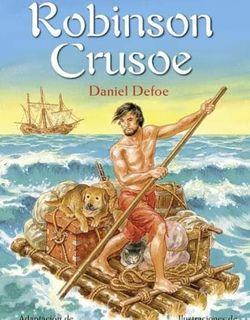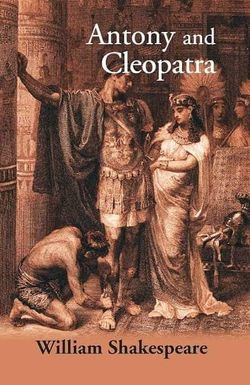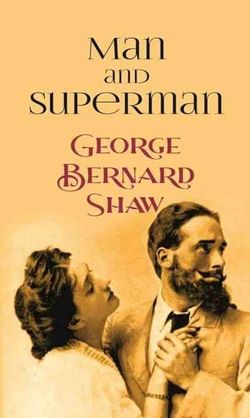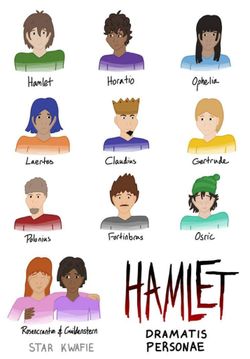Jul 14, 2024
English Literature
Robinson Crusoe
By Daniel Defoe
Robinson Crusoe, as a young and impulsive wanderer, defied his parents and went to sea. He was involved in a series of violent storms at sea and was warned by the captain that he should not be a seafaring man. Ashamed to go home, Crusoe boarded another ship and returned from a successful trip to Africa. Taking off again, Crusoe met with bad luck and was taken prisoner in Sallee. His captors sent Crusoe out to fish, and he used this to his advantage and escaped, along with a slave.
He was rescued by a Portuguese ship and started a new adventure. He landed in Brazil, and, after some time, he became the owner of a sugar plantation. Hoping to increase his wealth by buying slaves, he aligned himself with other planters and undertook a trip to Africa in order to bring back a shipload of slaves. After surviving a storm, Crusoe and the others were shipwrecked. He was thrown upon shore only to discover that he was the sole survivor of the wreck.
Crusoe made immediate plans for food, and then shelter, to protect himself from wild animals. He brought as many things as possible from the wrecked ship, things that would be useful later to him. In addition, he began to develop talents that he had never used in order to provide himself with necessities. Cut off from the company of men, he began to communicate with God, thus beginning the first part of his religious conversion. To keep his sanity and to entertain himself, he began a journal. In the journal, he recorded every task that he performed each day since he had been marooned.
As time passed, Crusoe became a skilled craftsman, able to construct many useful things, and thus furnished himself with diverse comforts. He also learned about farming, as a result of some seeds which he brought with him. An illness prompted some prophetic dreams, and Crusoe began to reappraise his duty to God. Crusoe explored his island and discovered another part of the island much richer and more fertile, and he built a summer home there.
One of the first tasks he undertook was to build himself a canoe in case an escape became possible, but the canoe was too heavy to get to the water. He then constructed a small boat and journeyed around the island. Crusoe reflected on his earlier, wicked life, disobeying his parents, and wondered if it might be related to his isolation on this island.
After spending about fifteen years on the island, Crusoe found a man's naked footprint, and he was sorely beset by apprehensions, which kept him awake many nights. He considered many possibilities to account for the footprint and he began to take extra precautions against a possible intruder. Sometime later, Crusoe was horrified to find human bones scattered about the shore, evidently the remains of a savage feast. He was plagued again with new fears. He explored the nature of cannibalism and debated his right to interfere with the customs of another race.
Crusoe was cautious for several years, but encountered nothing more to alarm him. He found a cave, which he used as a storage room, and in December of the same year, he spied cannibals sitting around a campfire. He did not see them again for quite some time.
Later, Crusoe saw a ship in distress, but everyone was already drowned on the ship and Crusoe remained companionless. However, he was able to take many provisions from this newly wrecked ship. Sometime later, cannibals landed on the island and a victim escaped. Crusoe saved his life, named him Friday, and taught him English. Friday soon became Crusoe's humble and devoted slave.
Crusoe and Friday made plans to leave the island and, accordingly, they built another boat. Crusoe also undertook Friday's religious education, converting the savage into a Protestant. Their voyage was postponed due to the return of the savages. This time it was necessary to attack the cannibals in order to save two prisoners since one was a white man. The white man was a Spaniard and the other was Friday's father. Later the four of them planned a voyage to the mainland to rescue sixteen compatriots of the Spaniard. First, however, they built up their food supply to assure enough food for the extra people. Crusoe and Friday agreed to wait on the island while the Spaniard and Friday's father brought back the other men.
A week later, they spied a ship but they quickly learned that there had been a mutiny on board. By devious means, Crusoe and Friday rescued the captain and two other men, and after much scheming, regained control of the ship. The grateful captain gave Crusoe many gifts and took him and Friday back to England. Some of the rebel crewmen were left marooned on the island.
Crusoe returned to England and found that in his absence he had become a wealthy man. After going to Lisbon to handle some of his affairs, Crusoe began an overland journey back to England. Crusoe and his company encountered many hardships in crossing the mountains, but they finally arrived safely in England. Crusoe sold his plantation in Brazil for a good price, married, and had three children. Finally, however, he was persuaded to go on yet another voyage, and he visited his old island, where there were promises of new adventures to be found in a later account.

Antony and Cleopatra
By William Shakespeare
Act I
This act serves to introduce the main characters — Antony, Cleopatra, and Octavius Caesar; it also outlines the main forces which motivate each of them. The first scene is set in Alexandria, where two of Antony's men, Demetrius and Philo, describe the lovers' relationship. Caesar appears in a later scene, and we see how he perceives Antony and Cleopatra's relationship. In addition, his comments about Antony reveal a great deal about his own character. We also have ample evidence in this act that Antony and Cleopatra are deeply in love, but Antony does not realize the tragic possibilities of their infatuation, yet he is torn by divided loyalties. In short, this first act sets out what the relationships are among the main characters, and it establishes the basic conflicts that dominate the rest of the play: first, Antony and Cleopatra and their love for one another; and second, Antony's rivalry with Caesar.
Act II
In this act, Shakespeare accelerates the inevitable final conflict between his primary characters. Pompey, an insurgent force against Rome, has become enough of a threat to the Roman Empire that the triumvirs are forced to form a truce in order to present a united front. Antony and Caesar decide to resolve the fighting among themselves; this new "alliance" is to be cemented by the marriage of Antony and Octavia, Caesar's sister. When Cleopatra finds out that Antony has married, she is devastated by the news. But she resolves not to give up Antony so easily. In the meantime, even while Antony pledges his loyalty to Octavia, his thoughts have returned to Egypt and Cleopatra.
Act III
Most of the main events of the play have their beginnings in this act. It begins with the continued efforts on Antony's part to work on behalf of Rome and regain his stature in the world of politics and war. But before long, he tires of the pursuit of power in Rome and decides to return to Egypt.
Octavia accompanies Antony to Athens, but she returns to Rome alone after Antony decides to return to Cleopatra. Octavia's disgrace gives Caesar sufficient reason to hate Antony even more than he already does, and he vows revenge. Octavia's discovery that Antony is glorifying Cleopatra and her children, one of them the illegitimate son of Julius Caesar, provides enough of an excuse for Caesar to declare that both Antony and Cleopatra are traitors. War begins, and Antony's forces are defeated; the rest of the play focuses, thus, on the aftermath of this battle and its effect on the love between Antony and Cleopatra.
Act IV
Antony is at first despondent over his defeat. He places the blame on Cleopatra, who fled with her ships. He jeers that she will desert him for Caesar, just as some of his troops already have. She convinces him that he is wrong, and they courageously make one last attempt to defeat Caesar. They win a battle, but their victory is short-lived, and finally they are absolutely defeated. Again, Antony doubts Cleopatra's loyalty, and so she flees to her monument, the tomb where her body is to be buried after her death. She hopes to make Antony see the error of his doubts about her by sending him word that she is dead. Antony suffers great remorse and falls upon his sword. He does not die immediately, however, and he is taken to the monument, where Cleopatra is waiting for him. They spend his final moments together, and Cleopatra is left to face the Romans alone.
Act V
This final act concentrates on Cleopatra's last hours, as she negotiates with the Roman victors. Caesar has promised that she will be treated with honor in Rome, but she has good reason not to believe him. One of Caesar's officers, Dolabella, warns her not to put her faith in Caesar's promises. Cleopatra resolves to die rather than be taken captive to Rome, and she and her women have a basket of poisonous snakes smuggled to them in order to commit suicide. Thus, both Antony and Cleopatra die and they ultimately deprive Caesar's final victory of its full glory, as he finally acknowledges.

Man and Superman
By George Bernard Shaw
First performed on the London stage in 1905, Man and Superman is an extraordinary play precisely because it inverts so many of the traditional or expected roles of theater. On its surface, this play, by George Bernard Shaw, is a standard romantic comedy. It does indeed have the trappings of this genre, providing light humor and satisfying romantic pairings, along with the familiar dramas of unrequited love, debated inheritance, and secret marriages. In this case, however, the play is unusual both because its style is somewhat experimental and because it deals so deeply with complicated philosophical and political ideas.
Stylistically, the play stands out because of its long, nearly novelistic stage directions. The narrator of these stage directions is an invisible but prominent character in the drama, offering sarcastic, witty insights into the various characters' personalities. The play is also quite long, with a particularly notable digression in the form of an extended dream sequence during Act Three. It is not unusual for productions of Man and Superman to cut this dream sequence out of their performances, in fact, simply because the play's run time is already quite formidable. For these two reasons—the unusually literary stage directions and the pure length of the script—Man and Superman resembles a novel more than a drama in certain regards. In fact, it was published as a book in 1903, two years before even being performed onstage.
Man and Superman engages with the ideas of philosopher Friedrich Nietzsche, making it somewhat heavier than a standard romantic comedy. In particular, the play is concerned with the concept of the übermensch, here translated as "superman." The übermensch, according to Nietzsche, is an ideal future person or future state of humanity. George Bernard Shaw's interpretation of the übermensch incorporates a new concept called the life force, which can be thought of either as an instinct prompting people to reproduce in order to create a superman, or as an abstract manifestation of the superman's characteristics. Shaw weaves this complicated intellectual idea into the romantic dramas playing out among Bernard Shaw's characters, who not only discuss philosophy, but who also are attracted to one another or reject one another largely based on the urges created by the life force. The individual happiness celebrated by romance as a genre is unpacked in this script, where romance becomes a mere step in a broader human drama of perpetual improvement.
Furthermore, politics occupy an unusually prominent space in this play. Several of the main characters are socialists, and the play tends to celebrate socialism. However, these fictional leftists keep company with a wide variety of other politically-minded people. These include a moderate liberal, an anarchist, and a billionaire capitalist. Ultimately, Shaw's most impassioned socialist is also the character closest to becoming, or at least laying the groundwork for, a real superman. Therefore, Shaw suggests, radical politics go hand-in-hand with radical betterment for humanity and the world as a whole.
Finally, Man and Superman engages with some very old ideas as well as some newer and more controversial ones. Its structure echoes that of the Spanish legend of Don Juan Tenorio, and many of the main characters directly correspond to characters from that original legend. However, certain changes reflect Shaw's own perception of modernity. For instance, while the original Don Juan was, according to legend, a predatory womanizer, the Don Juan figure in this play is in fact pursued by a woman. This alteration teasingly points to the increasingly elevated status of women in Shaw's England. Shaw himself was devoted to women's suffrage, and he includes several thoughtful discussions among his characters about the trials of life as a woman in Victorian society. At the same time, Shaw's Don Juan is a pursuer, not of sensory pleasures, but of knowledge and meaning. In this sense, Don Juan becomes something of a superman himself, since his aim is to improve himself, and, by extension, to improve society.
This play contains so many inversions, academic discussions, and political debates that an audience member might easily miss a few major moments in the text. Luckily, its more complicated ideas manifest within the context of a crowd-pleasing romantic comedy with mild social critique, meaning that the play can be enjoyed on a number of levels: as a satisfying and funny stage play, or as a complex, endlessly analyzable philosophical and political text.

To Kill a Mockingbird
Harper Lee
Scout Finch lives with her brother, Jem, and their widowed father, Atticus, in the sleepy Alabama town of Maycomb. Maycomb is suffering through the Great Depression, but Atticus is a prominent lawyer and the Finch family is reasonably well off in comparison to the rest of society. One summer, Jem and Scout befriend a boy named Dill, who has come to live in their neighborhood for the summer, and the trio acts out stories together. Eventually, Dill becomes fascinated with the spooky house on their street called the Radley Place. The house is owned by Mr. Nathan Radley, whose brother, Arthur (nicknamed Boo), has lived there for years without venturing outside.
Scout goes to school for the first time that fall and detests it. She and Jem find gifts apparently left for them in a knothole of a tree on the Radley property. Dill returns the following summer, and he, Scout, and Jem begin to act out the story of Boo Radley. Atticus puts a stop to their antics, urging the children to try to see life from another person’s perspective before making judgments. But, on Dill’s last night in Maycomb for the summer, the three sneak onto the Radley property, where Nathan Radley shoots at them. Jem loses his pants in the ensuing escape. When he returns for them, he finds them mended and hung over the fence.
The next winter, Jem and Scout find more presents in the tree, presumably left by the mysterious Boo. Nathan Radley eventually plugs the knothole with cement. Shortly thereafter, a fire breaks out in another neighbor’s house, and during the fire someone slips a blanket on Scout’s shoulders as she watches the blaze. Convinced that Boo did it, Jem tells Atticus about the mended pants and the presents.
To the consternation of Maycomb’s racist white community, Atticus agrees to defend a Black man named Tom Robinson, who has been accused of raping a white woman. Because of Atticus’s decision, Jem and Scout are subjected to abuse from other children, even when they celebrate Christmas at the family compound on Finch’s Landing. Calpurnia, the Finches’ Black cook, takes them to the local Black church, where the warm and close-knit community largely embraces the children.
Atticus’s sister, Alexandra, comes to live with the Finches the next summer. Dill, who is supposed to live with his “new father” in another town, runs away and comes to Maycomb. Tom Robinson’s trial begins, and when the accused man is placed in the local jail, a mob gathers to lynch him. Atticus faces the mob down the night before the trial. Jem and Scout, who have sneaked out of the house, soon join him. Scout recognizes one of the men, and her polite questioning about his son shames him into dispersing the mob.
At the trial itself, the children sit in the “colored balcony” with the town’s Black citizens. Atticus provides clear evidence that the accusers, Mayella Ewell and her father, Bob, are lying: in fact, Mayella propositioned Tom Robinson, was caught by her father, and then accused Tom of rape to cover her shame and guilt. Atticus provides impressive evidence that the marks on Mayella’s face are from wounds that her father inflicted; upon discovering her with Tom, he called her a whore and beat her. Yet, despite the significant evidence pointing to Tom’s innocence, the all-white jury convicts him. The innocent Tom later tries to escape from prison and is shot to death. In the aftermath of the trial, Jem’s faith in justice is badly shaken, and he lapses into despondency and doubt.
Despite the verdict, Bob Ewell feels that Atticus and the judge have made a fool out of him, and he vows revenge. He menaces Tom Robinson’s widow, tries to break into the judge’s house, and finally attacks Jem and Scout as they walk home from a Halloween party. Boo Radley intervenes, however, saving the children and stabbing Ewell fatally during the struggle. Boo carries the wounded Jem back to Atticus’s house, where the sheriff, in order to protect Boo, insists that Ewell tripped over a tree root and fell on his own knife. After sitting with Scout for a while, Boo disappears once more into the Radley house.
Later, Scout feels as though she can finally imagine what life is like for Boo. He has become a human being to her at last. With this realization, Scout embraces her father’s advice to practice sympathy and understanding and demonstrates that her experiences with hatred and prejudice will not sully her faith in human goodness.

Hamlet
By William Shakespeare
Characters List:
Hamlet
The Prince of Denmark, the title character, and the protagonist. About thirty years old at the start of the play, Hamlet is the son of Queen Gertrude and the late King Hamlet, and the nephew of the present king, Claudius. Hamlet is melancholy, bitter, and cynical, full of hatred for his uncle’s scheming and disgust for his mother’s sexuality. A reflective and thoughtful young man who has studied at the University of Wittenberg, Hamlet is often indecisive and hesitant, but at other times prone to rash and impulsive acts.
Claudius
The King of Denmark, Hamlet’s uncle, and the play’s antagonist. The villain of the play, Claudius is a calculating, ambitious politician, driven by his sexual appetites and his lust for power, but he occasionally shows signs of guilt and human feeling—his love for Gertrude, for instance, seems sincere.
Gertrude
The Queen of Denmark, Hamlet’s mother, recently married to Claudius. Gertrude loves Hamlet deeply, but she is a shallow, weak woman who seeks affection and status more urgently than moral rectitude or truth.
Polonius
The Lord Chamberlain of Claudius’s court, a pompous, conniving old man. Polonius is the father of Laertes and Ophelia.
Ophelia
Polonius’s daughter, a beautiful young woman with whom Hamlet has been in love. Ophelia is a sweet and innocent young girl, who obeys her father and her brother, Laertes. Dependent on men to tell her how to behave, she gives in to Polonius’s schemes to spy on Hamlet. Even in her lapse into madness and death, she remains maidenly, singing songs about flowers and finally drowning in the river amid the flower garlands she had gathered.
Laertes
Polonius’s son and Ophelia’s brother, a young man who spends much of the play in France. Passionate and quick to action, Laertes is clearly a foil for the reflective Hamlet.
The Ghost
The specter of Hamlet’s recently deceased father. The Ghost, who claims to have been murdered by Claudius, calls upon Hamlet to avenge him. However, it is not entirely certain whether the Ghost is what it appears to be, or whether it is something else. Hamlet speculates that the Ghost might be a devil sent to deceive him and tempt him into murder, and the question of what the Ghost is or where it comes from is never definitively resolved.
Horatio
Hamlet’s close friend, who studied with the prince at the university in Wittenberg. Horatio is loyal and helpful to Hamlet throughout the play. After Hamlet’s death, Horatio remains alive to tell Hamlet’s story.
Fortinbras
The young Prince of Norway, whose father the king (also named Fortinbras) was killed by Hamlet’s father (also named Hamlet). Now Fortinbras wishes to attack Denmark to avenge his father’s honor, making him another foil for Prince Hamlet.
Rosencrantz and Guildenstern
Two slightly bumbling courtiers, former friends of Hamlet from Wittenberg, who are summoned by Claudius and Gertrude to discover the cause of Hamlet’s strange behavior.
Osric
The foolish courtier who summons Hamlet to his duel with Laertes.
Voltimand and Cornelius
Courtiers whom Claudius sends to Norway to persuade the king to prevent Fortinbras from attacking.
Marcellus and Bernardo
The officers who first see the ghost walking the ramparts of Elsinore and who summon Horatio to witness it. Marcellus is present when Hamlet first encounters the ghost.
Francisco
A soldier and guardsman at Elsinore.
Reynaldo
Polonius’s servant, who is sent to France by Polonius to check up on and spy on Laertes.

By undefined
10 notes ・ 65 views
English
Intermediate